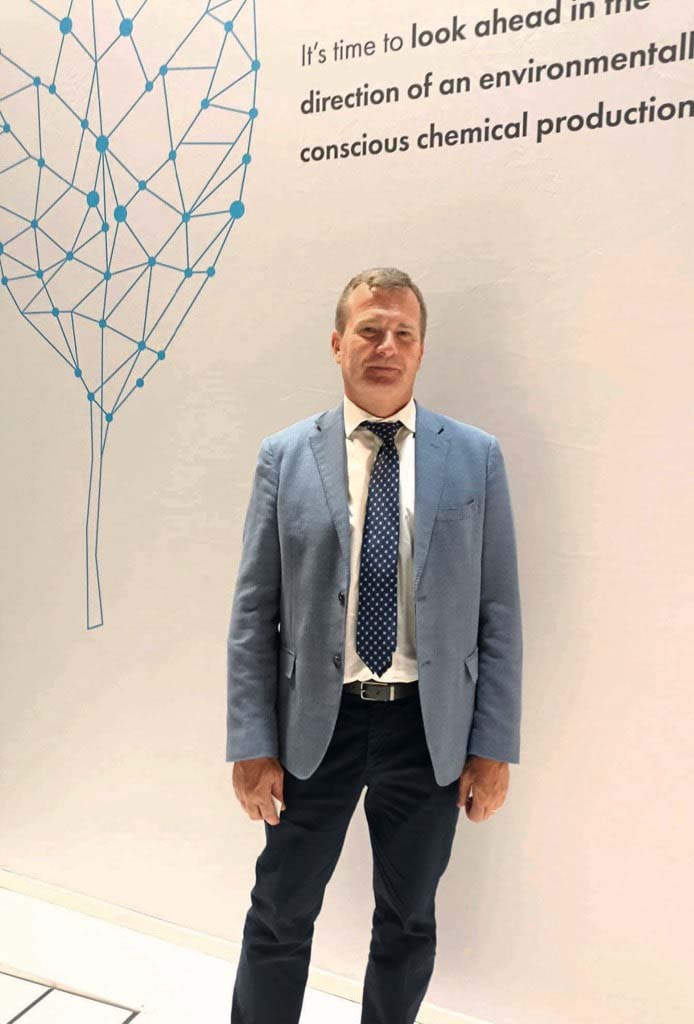Sustainable development has become the engine of many Italian enterprises and organizations, such as C.O.I.M., which has made the promotion of an economic model capable of playing a key role in reducing the environmental impact and the dependence on fossil materials its forte
The demand for leather goods is growing, and at the same time fuels a keen interest in alternative materials with a lower environmental impact. For years C.O.I.M., an international company that holds a leadership role in the production of polyesters, polyurethanes (coatings, adhesives, sealants and elastomers) and special resins for the production of composite materials and coatings, has been focused on this, through a constant commitment to research and innovation. With a worldwide network made up of 18 companies and 9 production sites, C.O.I.M. carries out projects that are aimed at supporting customers towards processes with less environmental impact. Pierluigi Giulivi, head of polyurethane technical assistance for footwear, illustrates the new products launched at the end of September and shows us that being greener is possible.
There is increasing talk of sustainability and recyclability, issues that your company faces with great commitment. Have you developed new products with focus on this?
“Yes, the news we have presented at fair are above all bio-based products. New generation polyurethane and thermoplastic systems, for the footwear sector, which use up to 70% of raw materials of vegetable origin. The method of use is the same as traditional materials compared to which they guarantee the same mechanical-physical properties. Therefore, the customer will not notice any difference in the use of these new innovative materials compared to the traditional ones but will gain in terms of environmental sustainability.”
Are the need to respond to increasingly pressing requests and market demand finally going hand in hand?
“Yes, today our mission and the demands of an increasing number of customers go hand in hand. It has now become essential to have “bio-based” materials in one’s collections, materials that can be defined as truly green.”
What is the percentage of demand for this type of material compared to traditional ones?
“From our point of view the demand is still too low. There is more needed to be done.”
But you are still expecting an increase…
“Yes. We expect and hope for it, not only in the footwear sector.”
In your opinion, will these new types of products ever completely replace the traditional ones? Will there always be those who will continue to use traditional products with the same quality and performance?
“It is obvious that the problem is the cost. We must not forget that the footwear market also includes companies that print low-cost slippers and soles. At the moment the costs of bio-based products are not equal to the traditional ones but the investments in research and development behind them are incomparable.”
At the moment, are the luxury brands mostly asking you for it?
“At the moment our interlocutors are the big sneaker brands or the fashion industry brands that represent for us what Formula One represents for the car sector: a high technological content field in which to develop products that will become accessible to mass markets.”
What do you expect from the future?
“We expect that this new technology to become increasingly popular. Our current and potential customers are now well aware that there is no innovation that does not focus on sustainability. Our bio-based materials represent a way to progressively replace the use of fossil fuels with renewable raw materials.”
In your opinion, how many years will it take to make the whole supply chain more sustainable?
“The road is traced. At the moment the figures are still relatively low but we hope and believe that the thrust of the market and the knowledge of well-prepared suppliers such as Coim will allow us to forge ahead.”

Pierluigi Giulivi, head of polyurethane technical assistance for footwear

